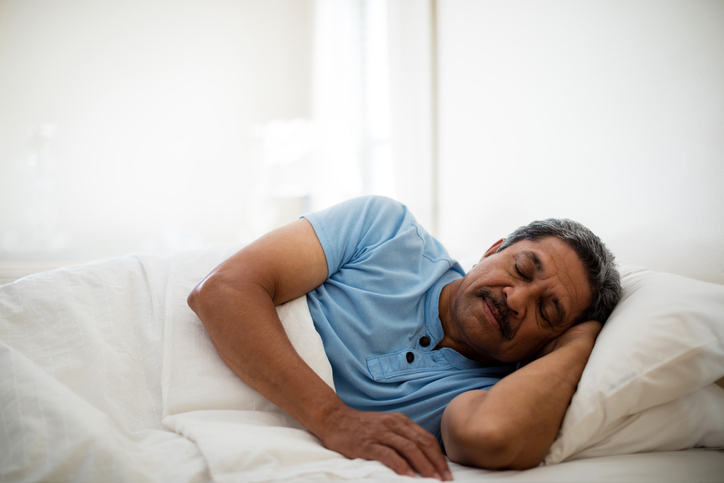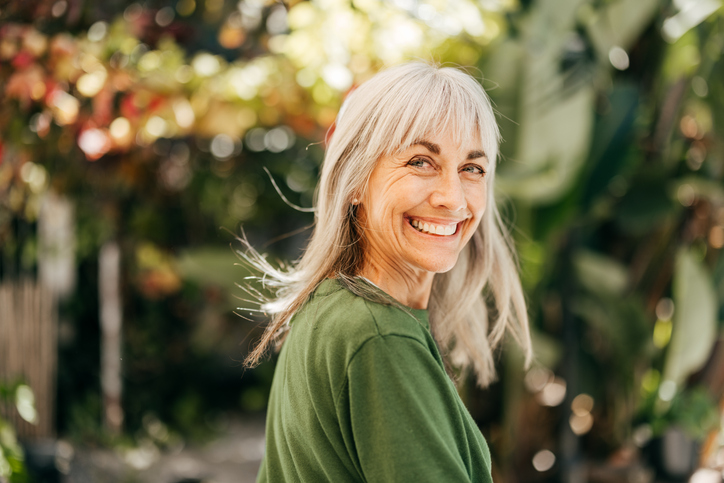Experts share why everyone might have different sleeping needs, along with guidance on overcoming insomnia.
Do you know if you’re getting enough sleep?
Scientists have analyzed the sleeping habits of millions of individuals, and found that sleep is important for maintaining brain health. Getting a sufficient amount of sleep even appears to reduce the risk of cognitive decline and Alzheimer’s disease. Scientists now believe this is because while asleep, the brain clears away beta-amyloid plaques and other protein deposits that contribute to Alzheimer’s disease.
But this doesn’t mean that more sleep is always better — sleeping too much can be a red flag for health issues, including dementia. In a number of large studies, researchers saw that people who slept seven hours at night had the lowest risk of developing cognitive decline or dementia, compared to people who slept less or slept more. While there is no magic number of hours that everyone your age should be sleeping, seven hours is a helpful baseline.
Some of us — parents and caregivers especially — know that good sleep can be hard to come by. As many as half of adults over 65 report symptoms of insomnia. Sometimes people become frustrated they can’t fall asleep or stay asleep, causing them to worry. This condition is sometimes called sleep anxiety, which unsurprisingly, sleep anxiety makes quality shut-eye even harder to come by.
Let’s take a look at the science surrounding the ideal amount of sleep — and the evidence-based strategies for a better night’s rest.
How much sleep does your body need?
While large studies found on average that seven hours of sleep was associated with the best cognitive health, everyone’s different. The specific amount of sleep an individual person actually needs can vary greatly, depending on factors like age. Another factor that could affect your individual, optimal amount of sleep is genetics: A small percentage of people have a gene that makes it possible for them to sleep for fewer than six hours each night without any health or cognitive consequences the next day.
So, if the answer could be different for each individual, how much sleep should you actually try to get? Experts suggest listening to the body’s cues.
“The best indicator of whether you’re getting enough sleep is how you feel during the day,” said Gorica Micic, PhD, a sleep expert from Flinders University. “If you feel sleepy, then you may need more sleep.”
If you aren’t feeling tired after five hours of sleep, it shouldn’t be a source of stress or anxiety that you’re not getting seven or eight hours: You’re simply paying attention to the sleep rhythms of your body, she noted.
Tips for better sleep
One tip doctors suggest is keeping the phone out of arm’s reach when going to bed. When you check their phone before bed, the light from the screen, along with notifications, social media, emails and other alerts, keep the brain alert.
And according to Michael Perlis, PhD, director of the behavioral sleep medicine program at the University of Pennsylvania, if you lie awake in bed at night and don’t feel tired, that may only make it progressively tougher to fall asleep each night. “The problem with staying in bed for any appreciable amount of time is that this reinforces sleeplessness, physiologically and psychologically,” Perlis said. He recommends giving oneself 20 minutes in bed to see if you fall asleep. If not, getting up and engaging in a calm activity like reading or listening to music may help you wind down. When you feel tired, head to bed, and hopefully you’ll have an easier time getting to sleep, he said.
The ideal amount of sleep varies person to person
There’s no question, a sufficient amount of high-quality sleep is a key part of good brain health. The science shows it. But when it comes to getting the right amount of sleep for you, at the end of the day experts say to keep in mind there is no set “ideal” number of hours of sleep per night. There are only guidelines, which you can use as a jumping-off point to determine the amount of sleep that helps you personally feel your healthiest and most clear-minded. If you’re struggling to fall asleep in bed, consult with experts about safe, constructive ways to break the cycle of stress and anxiety that might be keeping you awake.













